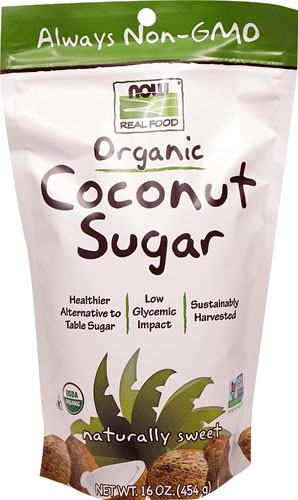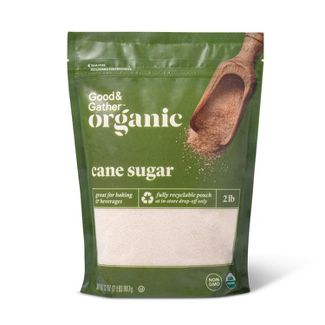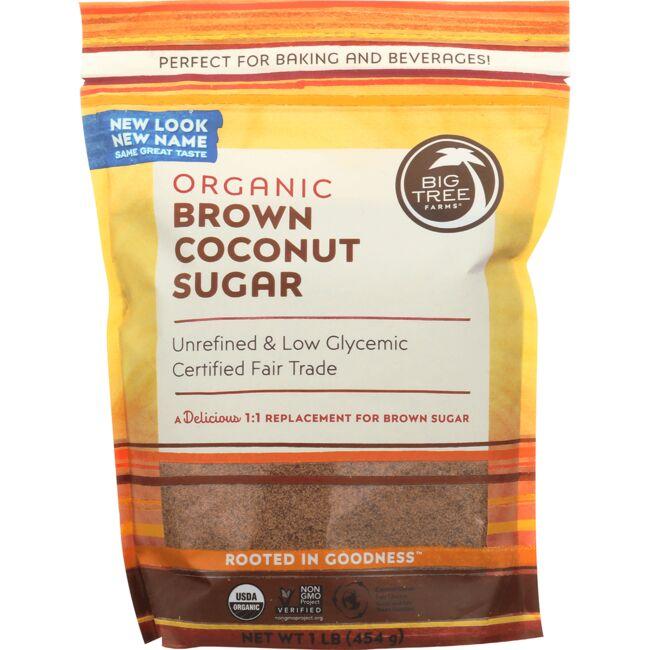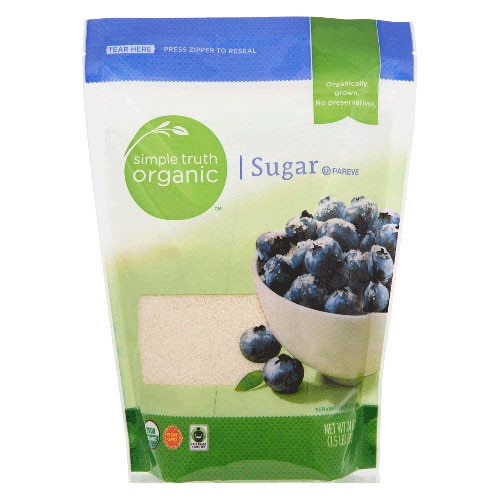- Fact Checked
Last Updated: January 19, 2023
Most of us know that sugar comes from a plant. So one would think that, without a doubt, sugar is vegan friendly. So it’s surprising to find out that many sugars, especially white sugar, are not vegetarian or vegan friendly.
Sugar starts as a sap coming from cane sugar, coconut palm, date palm, sugar beets, and more. From there, the sap boils down until it crystallizes. If left in its natural state, this is where we get turbinado, demerara, and muscovado sugar from.
White sugar starts like one of these natural sugars but has all its molasses removed. A centrifuge spins the sugar to remove all the molasses. This will leave a nearly white sugar like the Zulka brand.
Yet, most sugar companies will refine the sugar even more for the product to become even whiter. It will run through carbon to remove the remaining molasses. This carbon, made of charred cattle bones, thus renders the sugar no longer vegan. Bone char is cheaper than wood char and mostly comes from foreign countries.
We made a list below of trusted vegan sugar brands. Any sugar with a USDA Organic label is vegan friendly as bone char is not an allowed substance.
Zulk is a vegan favorite and is available at most grocery stores. You can find affordable bags of Morena Zulka sugar at Walmart and Aldi, but Zulka also makes powdered sugar and brown sugar. They have been producing natural, eco-friendly sugar for over 100 years. 
All Zulka sugar products are Non-GMO certified, meaning they don’t use any fertilizers or pesticides on their crops.
Their sugar comes from local family farmers who practice earth-friendly farming and milling methods. Zulka sugar is minimally processed with no harmful additives delivering a bolder, healthier aroma that’s great for coffee ad your body.
Wholesome is another vegan sugar brand commonly found in mainstream grocery stores. They offer a variety of products, including sugar, honey, agave, molasses, zero-calorie sweeteners, and baking mixes.
Founded in 2001, Wholesome was the first to bring Fair Trade sugar to the U.S. They lead the way in making quality products and respecting the people who grow them. To Wholesome, “Fair Trade” and “Organic” are not just symbols on the package. They are passionate about what they do. They are out there on the fields taking care of the bees and the delicate ecosystem.
Starting in 1967, Trader Joe’s is a neighborhood chain of grocery stores committed to providing quality products at affordable low prices. The store is full of unique and intriguing products. You will hardly find name brands here.
Their team travels the world looking for extraordinary products that their customers will love. They buy bulk directly from the supplier and pass those savings onto you. Trader Joe’s are also on a sustainability mission. Its focus is to prevent packaging waste, switch its products to renewable packaging, and eliminate excess plastic.
In 1858, Edward Billington and his son began importing tea and coffee from across the oceans. The Billington family then started to import sugar in 1977. They are famous for their Mauritian unrefined brown sugar. They offer a rainbow of sugar colors, including Demerara, Mascavado, maple syrup, unrefined castor, and icing sugar. 
Creating the different types and flavors of sugar is all about stopping the process at the right time. By switching to Billington’s sugars, your recipes will burst with flavor.
They work closely with the farmers on Mauritius island, ensuring ethical practices and fair trade. By processing and packaging everything on the island, the welfare of the locals has significantly improved their livelihoods.
From humble beginnings in Augsburg, Bavaria, Rapunzel started as a self-sufficient commune farm with a small natural health food store in the city. Forty-five years and 400 employees later, Rapunzel still stands by its original purpose; to manufacture organic, untreated, vegetarian foods. 
Dried fruit, muesli, and nut spread were some of Rapunzel’s first products. Today they produce over 500 products, including cooking oils, pasta, chocolate, and coffee. Rapunzel is also 100% petroleum-free. All their electricity comes from renewable sources, and they have installed solar panels on all of their rooftops.
Rapunzel is very transparent about everything that they do. They list their reports on their website, showing exactly how much waste they produce.
They are passionate about saving the environment and have made great efforts to change their packaging to paper and reduce plastic film. Their reports state they have roughly saved over 6000 kg (13,228 lbs) of plastic annually. Now that’s something to be proud of!
In 1956, Marvin Eisenstadt joined his father’s sugar packing company in Brooklyn. Natural food wasn’t a thing in those days. A local restaurant asked Marvin to help find less processed sugar. He traveled to the tropics and returned with a turbinado sugar that he named Sugar In The Raw. 
It wasn’t long after that many other shops joined the health food wagon. Now In The Raw offers agave, monk fruit, stevia, and honey. They have vegan, gluten-free, kosher, organic, and non-GMO options.
Back in the ‘60s, when the natural food industry was first introduced, health food enthusiasts were mostly categorized as hippies.
A degreed physical chemist, Elmwood Richard, researched that healthy foods and nutritional supplements enhance physical performance. So he started a small chain of health food stores around the Chicago area which eventually led to him manufacturing his own natural products.
Today the company is still family-owned and remains true to the founders’ original vision of producing affordable, high-quality natural products. Now Foods range from supplements, natural foods, essential oils, body, beauty, and pet foods.
Woodstock Farms started as The Hershey Import Company in 1971. They first started selling bulk nuts, seeds, and dried fruit to wholesalers in the New York metropolitan area. As they expanded, they changed their name and now extend their services to national food grocery stores and worldwide.
As they expanded, they changed their name and now extend their services to national food grocery stores and worldwide.
Every pallet that Woodstock Farms receive from the supplier gets inspected. Samples go under a full microbiology screening at the on-site laboratory. Tastes tests are also done hourly. Sounds like a nice job.
Employees follow Good Manufacturing Practices, and all equipment is thoroughly cleaned between each production. They are USDA Organic, kosher, non-GMO, and vegan certified.
Homegrown straight on U.S. soil, Florida Crystals gives you sugar straight from the mill to your table.  A great way to eat and support locally grown and cut down on fuel emissions. The Fanjul family began milling their first sugarcane in 1850. One hundred fifty years later, the passion for growing sustainable sugarcane has passed down from generation to generation.
A great way to eat and support locally grown and cut down on fuel emissions. The Fanjul family began milling their first sugarcane in 1850. One hundred fifty years later, the passion for growing sustainable sugarcane has passed down from generation to generation.
Florida Crystals take its quality seriously by constantly testing its soil and water. Farming and milling its own sugarcane lets them have full control over the quality of its products. They sell cane sugar, powdered sugar, and turbinado sugar.
One impressive ecological effort that Florida Crystal’s mills commit to is to reduce waste. After extracting the sugarcane juices called bagasse, the fibrous material gets reused in two ways. First, as energy to power the mills to make those great products that you love. The remaining bagasse is then turned into compostable plates and bowls.
In San Diego, California, Henry Boney started Sprouts selling fresh fruit at reasonable prices back in 1943.  Then, in 2002, when organic living was hard to come by and very expensive, Henry’s son and grandson opened a store in Arizona. “Healthy living for less” is their motto, and today has grown to 370s stores nationwide.
Then, in 2002, when organic living was hard to come by and very expensive, Henry’s son and grandson opened a store in Arizona. “Healthy living for less” is their motto, and today has grown to 370s stores nationwide.
Sprouts farmer’s markets have built great relationships with local farmers to provide the freshest produce. They believe in human and animal well-being and sustainable products like palm oil and seafood. You don’t need to be wealthy to be healthy.
You can find chocolate, different types of sugar, and snacks made by Sprout.
Costco created the brand Kirkland Signature in 1995 when they noticed a demand for better quality products at a lower price.
Grown in Brazil, the sugar cane juice molasses gets extracted, evaporated, and crystalized all on the same day. Like Zulka, it has an off-white color and delivers a flavorful, all-natural taste.
Kirkland Signature offers items in every grocery category you can think of, as well as clothes and household items.
Target started as just one store in Roseville, Minnesota, in 1962.
Good and Gather is a Target brand launched in 2019 free from synthetic ingredients. Simply Balanced is another Target brand introduced in 2013 that offers products, such as meat, veggies, dairy, and more, free of artificial flavors, colors, and preservatives and is 50% organic.
When it comes to the environment and diversity, Target cares. They are on their way to achieving 100% of renewable electrical energy by 2030 and a zero-waste mission by 2040.
How do they do this? By elevating national and sustainable brands and designing waste solutions while providing an equitable and inclusive workplace.
Redpath has been selling sugar products to consumers and foodservice outlets in Canada since 1854. The Redpath logo is Canada’s oldest continuously-used food brand. You can find the iconic refinery on Toronto’s waterfront. 
Suppliers must go through an extensive Ethical Sourcing Program. The program regulations meet high standards on human rights, the well-being of farmers, especially women and smallholders, and the protection of the environment.
Redpath has gone to great lengths to make its packaging sustainably sourced. Other goals include reducing emissions to 50% by 2030 and reducing water waste by 55%.
Redpath Sugar sells all types of sugar, including granulated, brown, and icing sugars.
Big Tree Farms produces only coconut sugar and other products made with coconut sugar like sauces and marinades. 
They offer a great soy-free alternative to soy sauce. Coconut sugar is richer in nutrients and has low glycemic blood levels than cane sugar. It also uses five billion liters less water than cane sugar.
Nira nectar comes from the coconut blossom flowers and is harvested from Indonesia’s islands. The nectar is then dried and hand grounded into beautiful granules. Big Tree Farms also practice regenerative farming, staying true to ancient practices while saving natural resources.
Simple Truth is a brand sold at Kroger, founded by Barney Kroger in 1883. He spent his entire life savings of $372 on buying one grocery store in downtown Cincinnati.
Kroger knew that people had to buy bread, meat, and produce at different shops. He thought it would be simpler if everything was at one stop. In 1901, he became the first grocer in the country to establish his own bakery and also integrate a meat department.
Roughly 42 million Americans struggle with hunger, yet 35% of food produced gets thrown away. By 2025, Simple Truth has a zero hunger and zero waste plan to end hunger in their community and eliminate waste.
Simple Truth sells various items, including meat, eggs, fruits, vegetables, snacks, and baking products.
In the 1960’s Bob’s wife, Charlee, decided she was going to feed her family nutritious whole grains.  It all started with a loaf of whole wheat bread fresh from the oven. She was a major component of the store and took on many roles, including packaging products by hand.
It all started with a loaf of whole wheat bread fresh from the oven. She was a major component of the store and took on many roles, including packaging products by hand.
The doors to Bob’s Red Mill opened in 1978 in Oregon. For Bob, it has always been about people over profit. He wanted to provide wholesome food, have close relationships with farmers, and treat employees respectfully. Today, Bob’s Red Mill is 100% employee-owned and upholds Bob and Charlee’s values and legacy.
Along with grains and sugar, Bob also sells a variety of granolas, baking mixes, beans, seeds, baking aids, protein powders, and more. They also focus on nourishing the planet by installing solar panels, electric vehicle charging stations, reducing plastic, and reducing package sizes.
As we can see, producing a vegan sugar brand is not only about being free of animal by-products. It’s about living a nutritious, wholesome lifestyle while also caring for the only home we have—Earth.
With the ongoing environmental crisis at hand, it’s crucial to stand behind companies with good morals and practices. Be on the lookout for brands labeled as “all-natural.” After all, animals come from nature as well.



At VL, our story is one of overcoming the challenges life has thrown our way. We’ve faced personal and professional setbacks, endured mental and physical struggles, and emerged with a deep understanding of how to live with intention. Over the past 35 years, we’ve committed to building a life centered around health, happiness, and purpose. This site is a result of those experiences, designed to help others, like you, navigate times of change and discover opportunities for growth. We would be honored to have you join us on this path toward a fulfilling future.
Address: 1300 Avenida Vista Hermosa, San Clemente, CA 92673, United States | Phone Number: +1 (949) 248-0131 | Email: contact@veganliftz.com